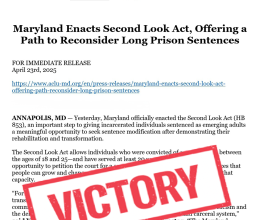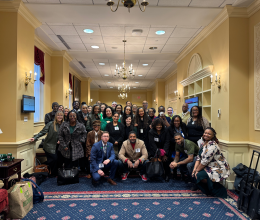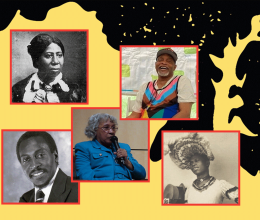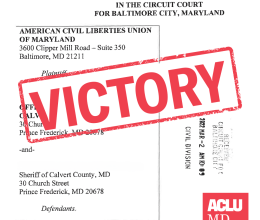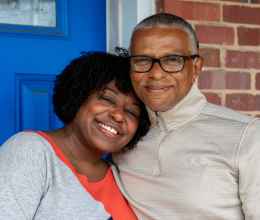
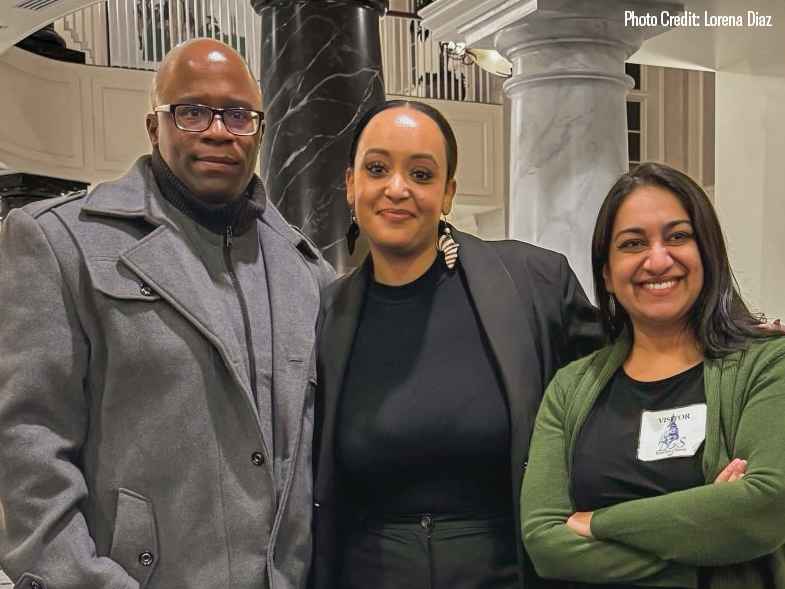
(Anthony Muhammad, Yanet Amanuel, and Sonia Kumar stand together in the Maryland House office building on the day of a hearing in the House Judiciary Committee for the Maryland Second Look Act. Photo by Lorena Diaz.)
By Anthony Muhammad. The writer is a youth mentor with Baltimore Brothers, a community engagement specialist with We Our Us, and an adviser with the Maryland Parole Partnership.
Take Action: Pass the Maryland Second Look Act
Thirty-one years ago, on Jan. 26, 1993, at age 15, I was arrested on two homicide charges in Baltimore City. I was ultimately convicted and sentenced to life plus 20 years in prison. The judge who sentenced me mistakenly believed that I was unredeemable, unreformable, and that the actions I committed were unreconcilable. She stated that I had “little prospect of ever being able to come out and function,” and that I showed very “little hope of rehabilitation.” The judge was unconvinced that “job training, education, and such would make [me] a safe citizen.”
Thankfully, my sentencing judge was wrong about me. Today, I am not only redeemed and reformed, but I have also reconciled through victim/offender mediation with the daughter of the victim in my case — who has forgiven me.
On Sept. 20, 2022, I was released under the Maryland Juvenile Restoration Act. I served a total of 29 years, seven months, and 29 days. Interestingly, the judge who released me said the complete opposite about me than the judge who originally sentenced me. In fact, the judge who released me stated that my demonstration of maturity and rehabilitation was so remarkable, that in all her years on the bench, I was the very first “violent offender” that she had absolutely no reservations about releasing back into the community.
There are no words adequate to express the depths of my remorse for the crimes I committed. I made a horrible decision. It was the worst decision I ever made in my life, and I will always deeply regret my actions. However, egregious as my crimes were, they were not the result of “permanent incorrigibility” or “irreparable corruption.” I did not exhibit such “irretrievable depravity” that rehabilitation was impossible. As the distinguished civil rights attorney, author of the book “Just Mercy,” and founder of the Equal Justice Initiative, Bryan Stevenson, once said, “Each of us is more than the worst thing we’ve ever done.”
Since my release, I have now become part of the solution to crime and violence in the same community where I was once part of the problem. I am a youth mentor with Baltimore Brothers, Inc., where we provide manhood training and life coaching to youth.
